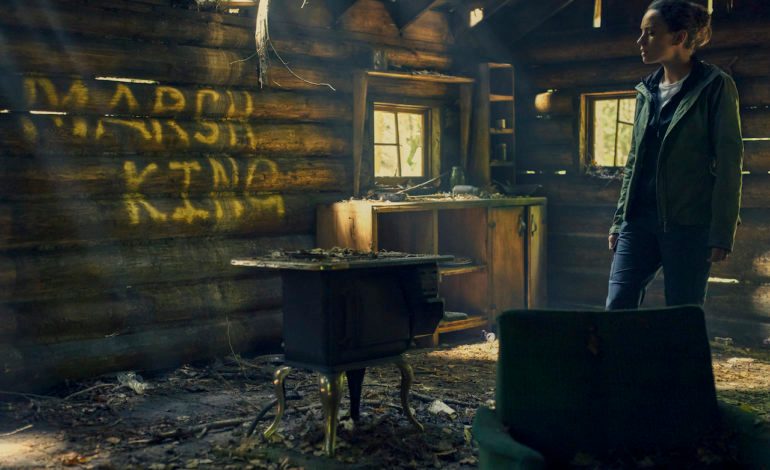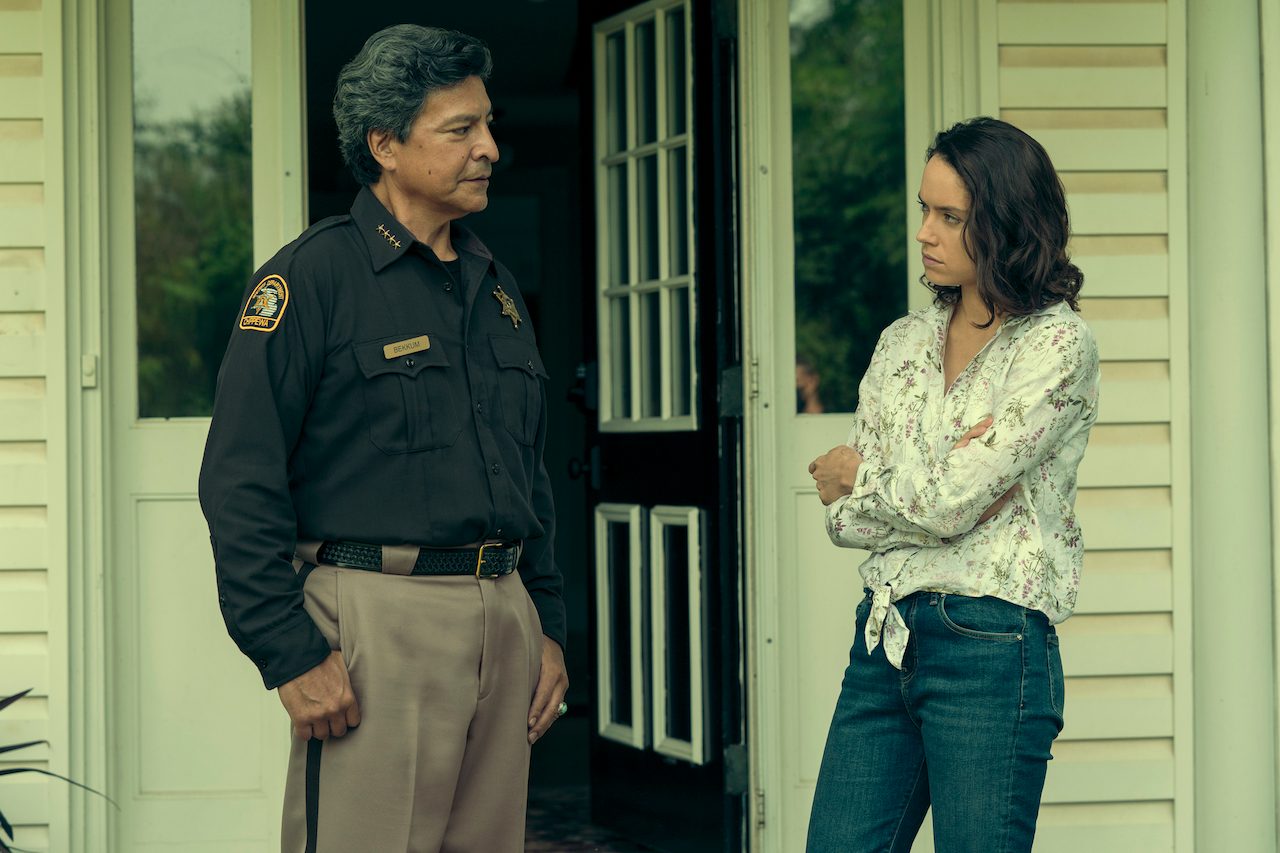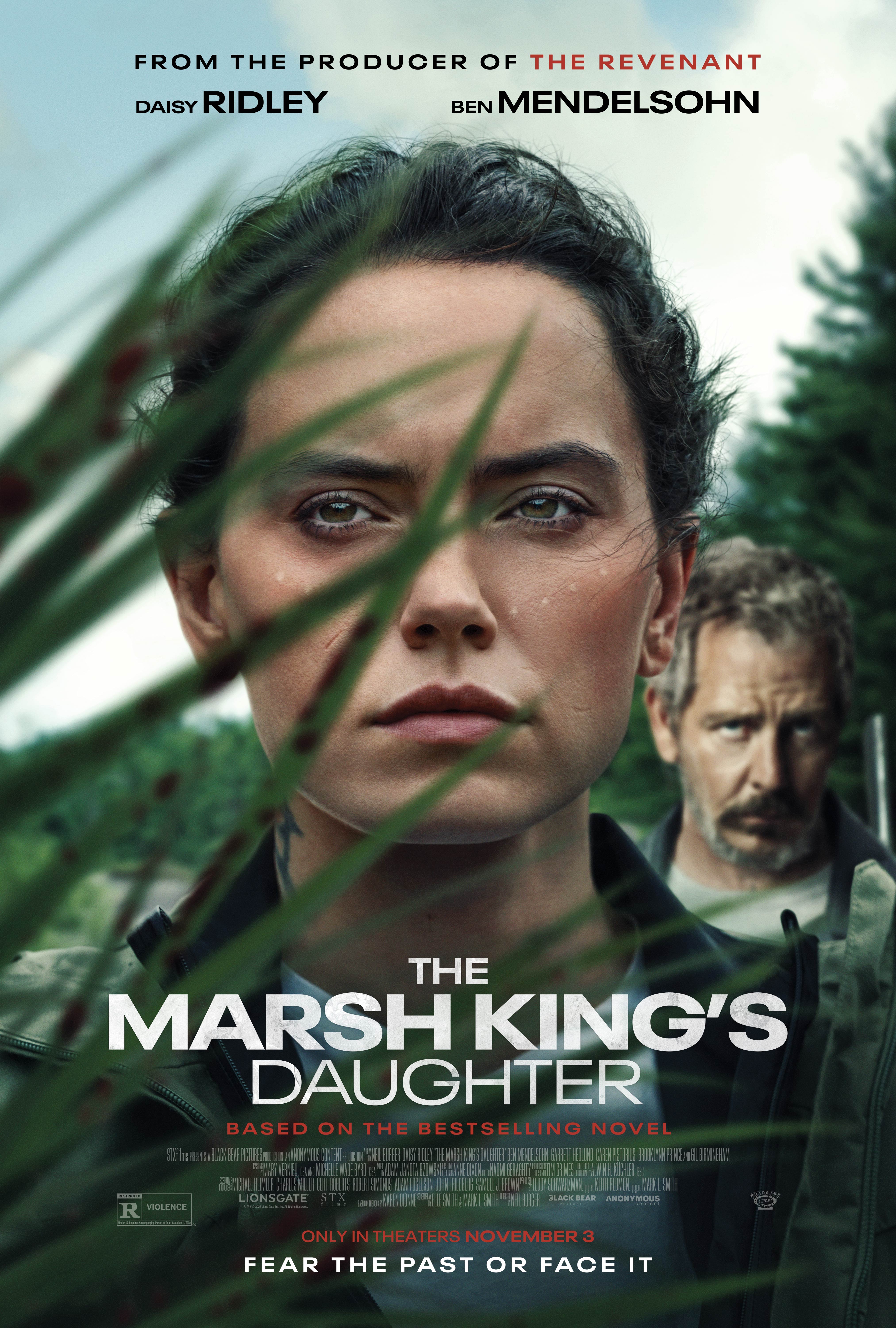

The Marsh King’s Daughter centers around a young girl named Helena who lives in the deep woods with her father and mother, far away from people and the rest of humanity. Adorned with stick-and-poke tattoos from her father, Jacob, Helena follows her father around their woods, hunting and tracking animals, learning how to live off the land. Helena, Jacob, and her mother have lived in seclusion for years until a stranger shows up to change Helena’s life forever. When a stranger finds them in the woods, Helena comes to find out Jacob kidnapped her mother years ago and was forcing them to live in exile, away from authorities for his own, selfish reasons. In the present day, Helena is all grown up with a family of her own and is suddenly confronted with the possibility of seeing her father again after he escapes from a prison transport vehicle.


Gil Birmingham as Clark Bekkum and Daisy Ridley as Helena Pelletier in The Marsh King’s Daughter.
There was a time for book adaptations about a girl who spends time in the wilderness. First, there was The Hunger Games, Where the Crawdads Sing, and now there is The Marsh King’s Daughter—the nature-centric thriller, based on the book of the same name, written by Kare Dionne. Dionne’s book is critically acclaimed and was selected by the Library Journal in 2017 as one of the best thrillers of the year. Directed by Neil Burger, who is no stranger to book adaptations with Divergent and Limitless, unfortunately, the film falls flat.
From the first 10 minutes, it is obvious this is an adaptation of a book and not an original story. The world Dionne created is very rich and is a story that deserves the care of a longer runtime. Usually, audiences would not complain about a movie being “too short” during the time of two-and-a-half to three-hour movies being the norm. However, the hour and forty-five-minute runtime does a disservice to The Marsh King’s Daughter, forcing the film to skip from one plot progressing point to the next; which causes all characters to feel like strangers to one another, leaving little to no room for the audience to connect to each character as anything more than a stand-in.


Garrett Hedlund as Stephen Pelletier in The Marsh King’s Daughter. Photo Credit: Philippe Bossé
Daisy Ridley stars as Helena, who is so aloof from the world after 20 years out of the woods, that she fails to connect with audiences past the surface level. Helena’s character is severely underdeveloped, forcing viewers to fill in the gaps in her personality for the rest of the film with the backstory given in the first 15 minutes. When she is shown with her daughter and husband, played by Garrett Hedlund, the relationships are formulaic and surface-level. Hedlund and Ridley have zero chemistry, and the dialogue between Helena and her daughter read right out of a Script 101 class. Ben Mendelsohn and Gil Birmingham give the best performances of the film, being the perfect supporters to make the film a little more believable and give the audience a hint of what Dionne wrote in the novel.
Throughout the film, the pacing continues to be choppy and acts like a highlight reel of the most important parts of the book. Burger does not complete the tasks he once set out to do in Limitless and Divergent, but fails at re-telling a story that needed time to be told. Performances were lacking, creating no bond between the viewer and the characters. The cinematography was just subpar, the scenic shots were nice, but the colors seemed jumbled and cheap. Despite the opportunity to create a larger-than-life story, The Marsh King’s Daughter feels small and unimpressive.


Score: 2 out of 5
The Marsh King’s Daughter, given the budget and runtime, could have been a great thriller. The film focused too long on the backstory and not enough time on the characters in the present. I did expect more from Ridley, and I don’t think she was a good choice for this role. It is a rushed and seemingly almost incomplete movie that couldn’t decide where to focus. This is a film to wait for it on streaming, I am sure it will be there soon.
